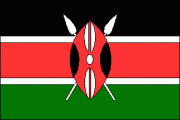The United Nations Peacebuilding Commission adopted, Wednesday, September 7th, 2016, a historic Gender Strategy on gender responsive peace building under the chairmanship of Ambassador Macharia Kamau. The Commission is the first inter-governmental body of the United Nations to adopt its own gender strategy.
“This strategy is the first of its kind; the Peacebuilding Commission is the first intergovernmental body to adopt its own strategy to integrate women in its work,” said Ms. Aparna Mehrota, UN Women Director of Coordination Division, during a meeting of the Peacebuilding Commission’s Organizational Committee in New York.
The adoption of the strategy is keeping in line with the key priorities set out by the Chair at the beginning of his chairmanship and the realization of Goal 6 in the 2030 Agenda on Sustainable Development. “The strategy speaks to the critical step in guiding the PBC’s work in promoting gender equality and the empowerment of women in peacebuilding,” said Kamau.
The gender strategy seeks to strengthen the Commissions engagement on gender-related aspects of peacebuilding by ensuring an inclusive approach which takes into account women’s perspectives, including their specific needs and promote gender equality in order to make peacebuilding more effective.
Evidence shows that there are social and economic benefits to including women in peacebuilding efforts. According to the United Nations Secretary General’s report on “Women’s Participation in Peacebuilding,” women play an important role in “re-establishing the fabric of society. Women devote a greater proportion of their income than men do to expenditures that benefit families.”
One of the ways Member states can implement the Strategy is through including it in their National Action Plans, promoting key messaging on gender responsive peacebuilding, and using the “PBC Gender Strategy Checklist” to guide their engagement.
The 13-page gender strategy, came after 2-month long intergovernmental negotiations process under Kenya’s Chairmanship. The first phase of background research including country case studies began under Sweden’s chairmanship of the Commission working alongside representatives of the UN Women.
The PBC Gender Strategy defines a series of priority areas of strategic action for PBC’s gender-responsive engagement at the country, regional and global levels, as well as key messages that the PBC should systematically promote. Consultations on the draft Strategy were held at the global level as well as in country, with Member States of the PBC, civil society partners, UN missions and country teams.
Following today’s adoption member states from the PBC Organization Committee will nominate a member to serve as the focal point for the Gender Strategy and gender integration issues in general.
Kenya assumed the chairmanship of the commission in February 2016 and has strongly advocated for the adoption of a substantial and comprehensive Gender-strategy, including its timely implementation.


